AITA for making my sister’s wedding “about me” by bringing my service dog?
Lucy is a service dog who helps OP (28F) during fainting spells due to a serious medical condition. Lucy is not only trained to warn OP that an episode is coming, but to remain with her and keep her safe and calm while she is unconscious — something that both enables OP to have a fully functional, independent life. And of course, Lucy is not just a pet, but a medical necessity.
But now, a family happy occasion —OP’s sister (30F)is getting married —has become fraught because of this. OP was up for attending and let her sister know she was taking Lucy, and she got pushback. Even a lauded dog is a distraction from the splendor of the ceremony, her sister contended. They bandied ideas of leaving Lucy at home, or moving to the back, where the dog wouldn’t be seen- none of which grappled with OP’s concrete safety issue.
Things heated up when OP’s sister told her she was “making the day about herself,” and “moved the dog ahead of family.” OP is now stuck between a rock and hard place — miss the wedding and potentially fracture the relationship, or go without Lucy and impact her health. Family members, however, have been split over whether to side with the bride or accept that her demand is unreasonable. OP asks Reddit, is she really the villain for prioritizing her health?
Read for more info Reddit
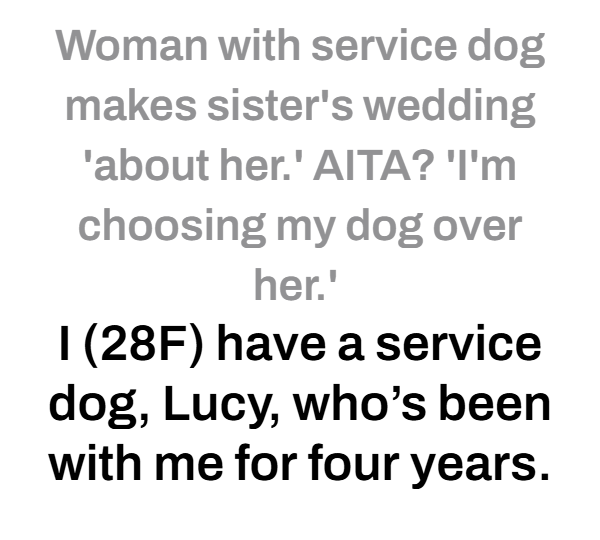


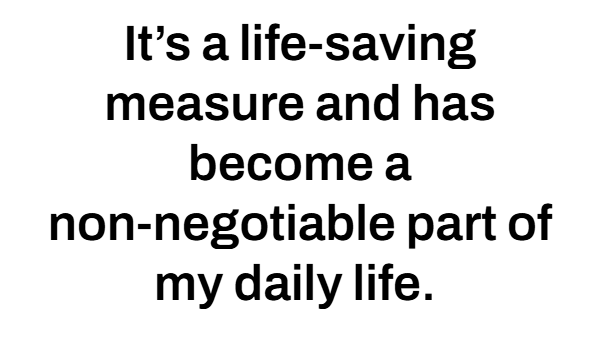



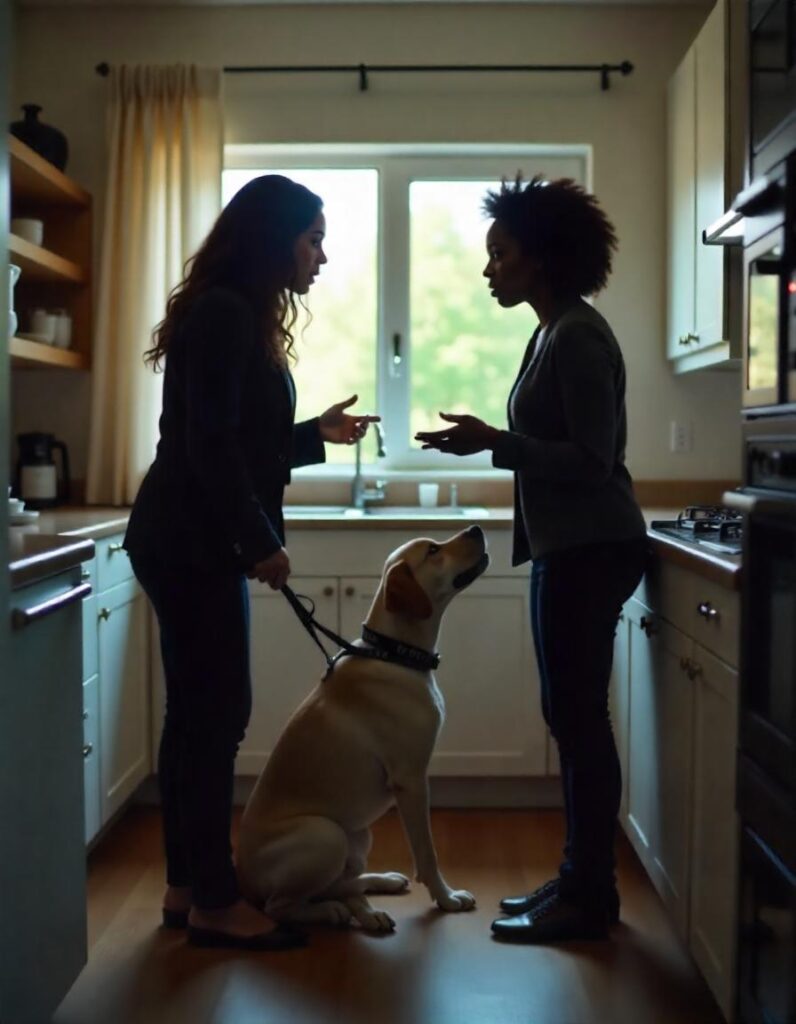
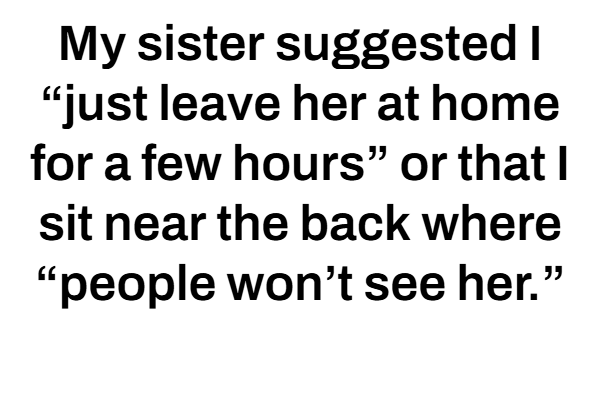

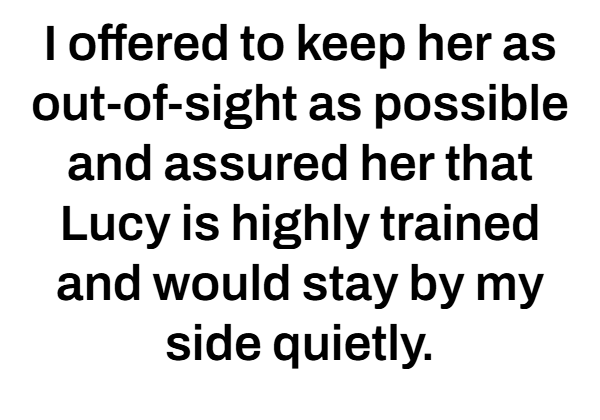


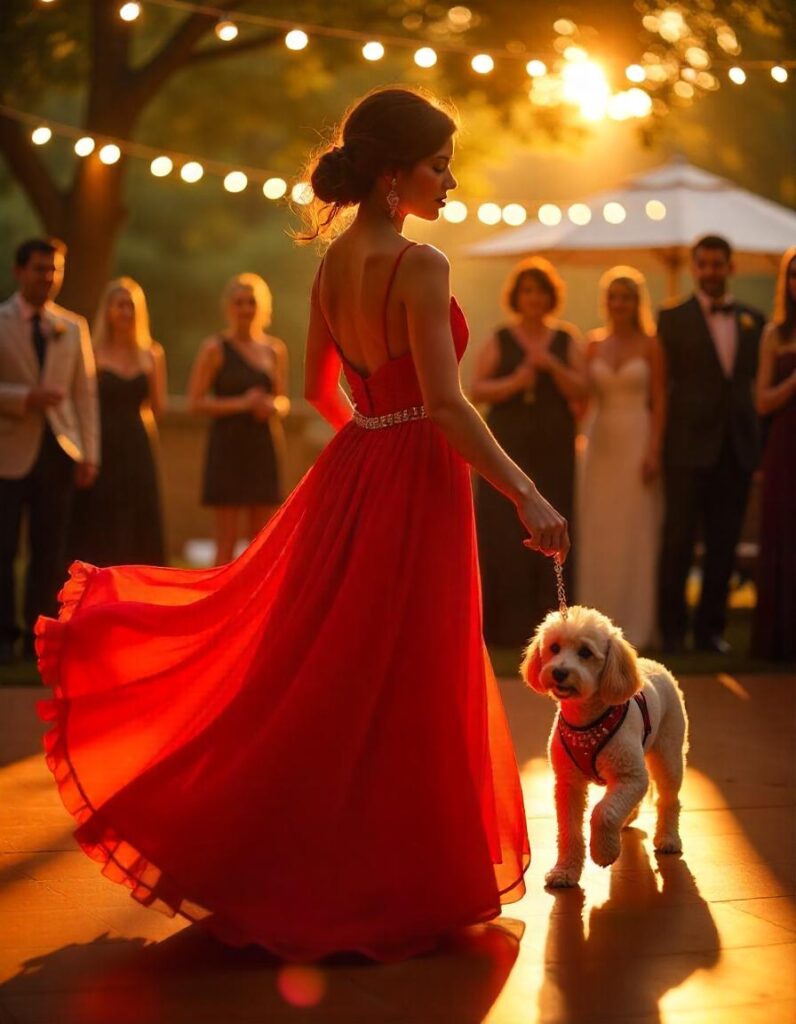
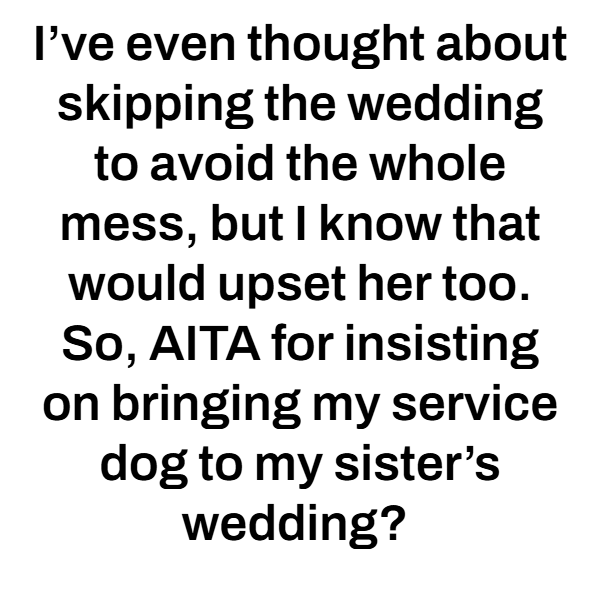
Legal Protections for Service Animals
Under the Americans with Disabilities Act (ADA), service dogs are legally permitted in most public spaces, including event venues, regardless of whether the event is private or public. A service animal—unlike an emotional support animal—is specifically trained to perform tasks directly related to a person’s disability. As such, Lucy’s presence is not a mere preference but a reasonable accommodation for a documented medical need. Denying access could technically be viewed as discrimination, particularly if the wedding venue is a commercial establishment covered by the ADA.
📝 Source: ADA National Network
Social and Ethical Considerations
Weddings are highly emotional events where social norms often clash with personal rights. While it’s common for brides to envision a picture-perfect day, prioritizing aesthetics over accessibility raises ethical red flags. Numerous case studies in disability advocacy highlight that accessibility should never be framed as an inconvenience, especially for family members.
Similar stories on forums like r/Disabled or r/Service Dogs show patterns: disabled individuals frequently encounter pushback when their needs don’t align with others’ aesthetics or expectations of “normalcy.” These posts often conclude that family events shouldn’t place someone in a position where their health or safety becomes a bargaining chip.
Here’s what top commenters had to say about this one:



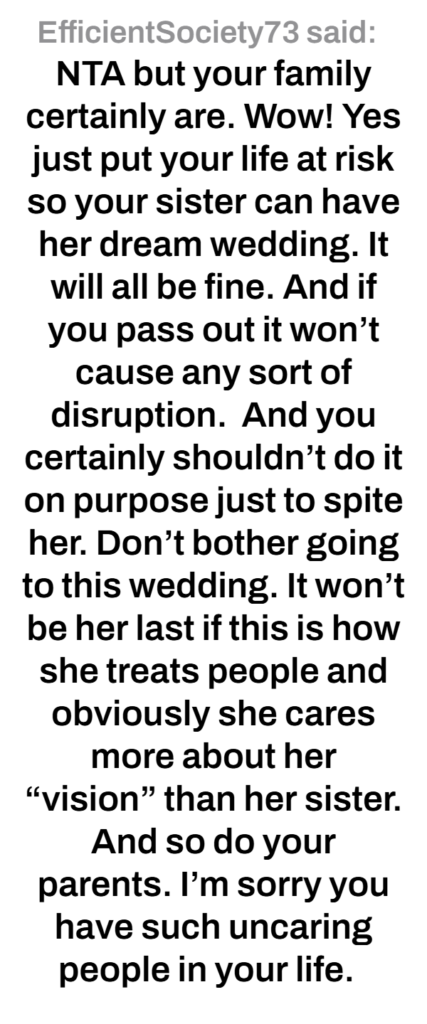
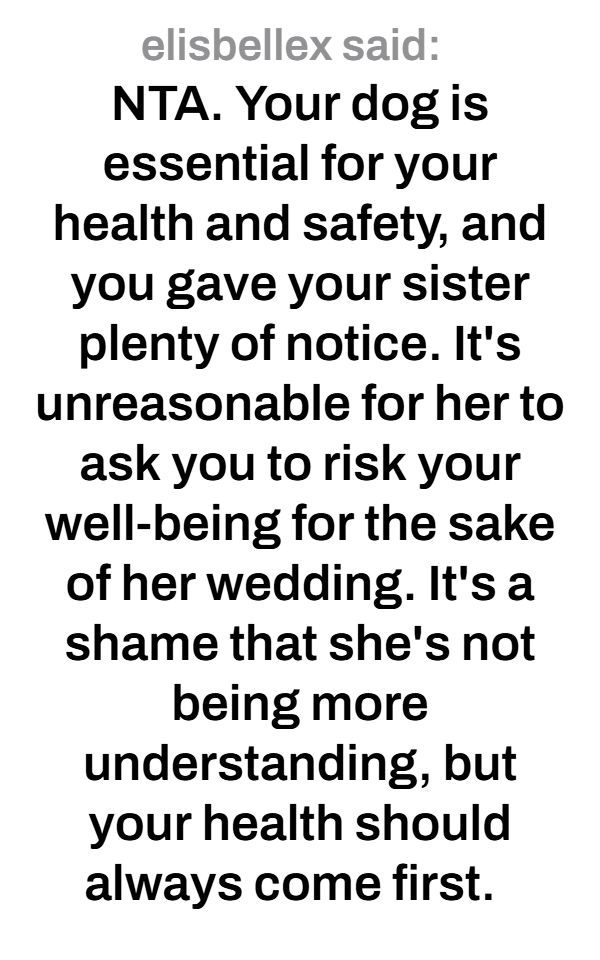
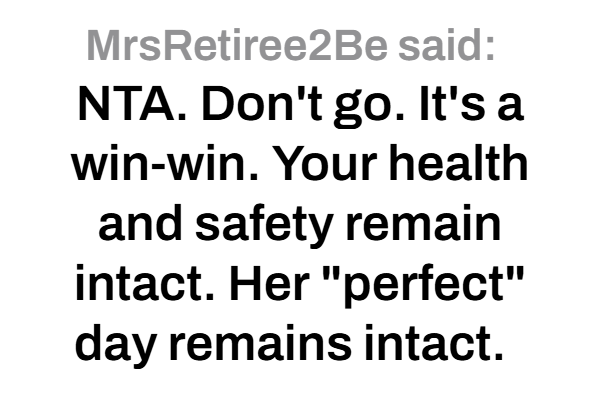
The OP’s service animal is a medical accommodation shielded by the ADA. That demand from her sister, while rooted in emotion, stems from misunderstanding a facet of disability rights. In the end, no one should have to endanger his or her health for the sake of another person’s aesthetics—especially not a family member! That’s going to require some tact, but OP is not wrong for refusing.

